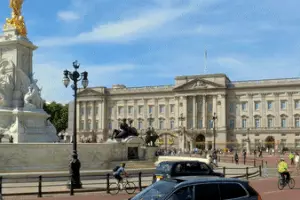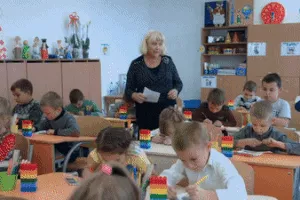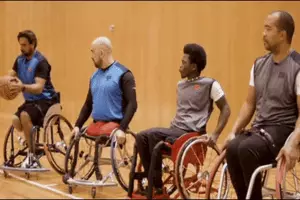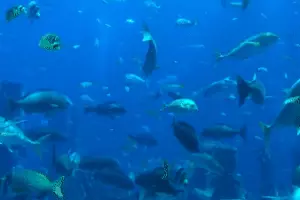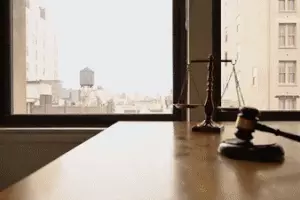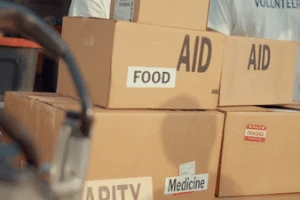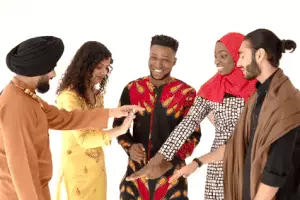
Charter and Rules
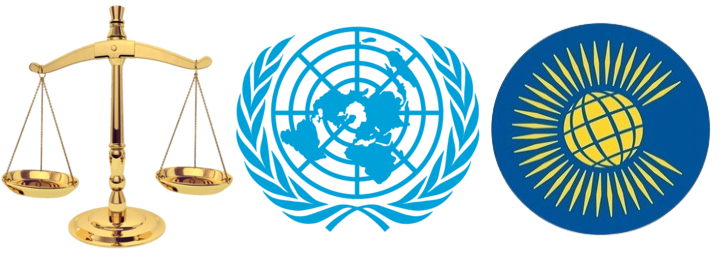
Recitals
Recitals Charles the Third, by the Grace of God, of the United Kingdom of Great Britain and Northern Ireland and of His other Realms and Territories King, Head of The Commonwealth and The Trusted Save, Defender of the Faith.
King Charles III in right of the Crown
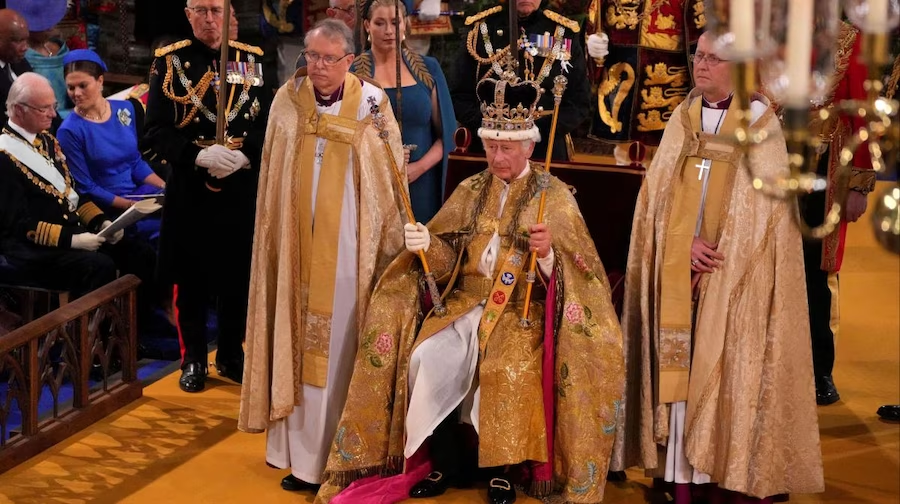
TO ALL TO WHOM THESE PRESENTS SHALL COME, GREETING!
WHEREAS The Trusted Save represents St. Edwards Crown,
AND WHEREAS The Trusted Save is responsible to preserve natural resources and positively impact human and non-human life around the world.
AND WHEREAS The Trusted Save has the power to do anything within the law that may promote or assist in promoting the Objects, including (but not limited to) the power to preserving the natural resources and the power to positively impact human and non-human life around the world.
AND WHEREAS His Majesty King Charles III and We Ourselves were graciously pleased to grant The Charter.
THEREFORE KNOW YE We are pleased to command.
CHAPTER I
PURPOSES AND PRINCIPLES
The Organization is based on the principle of the sovereign such as liberty, autonomy, equality, and fairness.
The Objects of The Trusted Save are, for the public benefit.
The Trusted Save’s principles are to take action on issues facing global humanity, including support for equality, human rights and non-human rights, sponsorship of orphans, refugees, asylum seekers, poverty, homelessness, animal welfare, climate change, emergency relief, food aid, learning disabilities, aid for drinking water, clothing aids, medical aids and the transformation of violence into peace.
Article 1 The governing and jurisdiction Council
- The Governing Council will consist of eleven member countries: United Kingdom, United Stated, Italy, Republic of China, Russia, France, Israel, Germany, Saudi Arabia, Egypt, Cameroon and with the founder of the organization.
- The Governing council , shall hold periodic meetings at which each of its members may, if it so desires, be represented by a member of the government or by some other specially designated representative.
- Decision of the governance on procedural matters shall be made by an affirmation vote of 11.
- The Jurisdictional Council will consist of The Chief of The Trusted Save, The International Criminal Court, The International Court of Justice, The Justice of the United States, The Supreme Court of the United kingdom, The European Court of Justice, the European Court of Human Rights , The African Court on Human and Peoples’ Rights.
- The jurisdictional Council will contribute to the development of innovative and sustainable solutions for equitable international and national laws and the improvement of public safety through prevention, protection, response, and resilience situations; Overcomes and supports equality, human rights, and non-human rights.
- Improve the performance of global courts, strengthen transparency, integrity and accountability
- Each member of the Jurisdictional Council will have a representative who will be the head of their jurisdiction.
- The Members of the jurisdictional council agree to accept and carry out the decisions of in accordance with the present Charter.
Article 2 Animal Welfare
- The organization will have the power to influence decision-makers and address cumulative, long-term, indirect, and global consequences of Animal Welfare within the United Nations, and other animal welfare organisations around the world .
- Develop and put into practice innovative and sustainable legislative solutions to human right and non-Human rights law that enable everyone to live with dignity in the world.
- Conduct research and evaluation to inform policy and practice and contribute to animal welfare.
- Investigate human right and non-human right cases, and enforce the law.
- Protect animals in disasters and including animals in disaster-relief programs.
- Manage animal populations and disease control in the most humane manner available and acceptable by society.
- Consider animals in their wider ecological context and how decisions concerning animals impacts on wider society.
- Promote preventative healthcare and the practice of good veterinary standards including good pain management.
- Advocate both within the veterinary clinic and the community for the welfare of animals.
- Educate the public on responsible pet ownership and their duty of care towards animals.
- Promote and encourage respect for human rights and non-human rights for fundamental freedoms for all without distinction.
- Support Animal welfare organisations and the communities with foods, water, medicines, and other emergency assistance to animals in need.
Article 3 Climate Change
- The organization will have the power to influence decision-makers, and address cumulative, long-term, indirect, and global consequences of climate change within the United Nations, and other climate change organisations around the world .
- Conduct research and evaluation to inform policy and practice and contribute to climate change.
- Work Collaboratively across the humanitarian sector and beyond to strengthen climate and environmental action.
- Demonstrate leadership and share best practice to improve the environmental sustainability of work
- Maximize the environmental sustainability of work and embrace leadership from communities, local and international actors.
- Intensify the response to growing humanitarian needs and support those most exposed to the impacts of climate and environmental crises ( adaptation, disaster risk reduction and anticipatory )
- Mobilize urgent and more ambitious climate action and environmental protection.
- Adopt at all levels sustainable development plans and regulations that make environmental conservation and rehabilitation integral to all development initiatives.
- Establish and safeguard viable nature and biosphere reserves, including wild lands and marine areas, to protect Earth’s life support systems, maintain biodiversity, and preserve our natural heritage.
- Ensure that decision making addresses the cumulative, long-term, indirect, long distance, and global consequences of human activities.
- Prevent pollution of any part of the environment and allow no build-up of radioactive, toxic, or other hazardous substances.
- Build large and influential networks and holding organisations accountable, turning their commitments into action.
- Take action to avoid the possibility of serious or irreversible environmental harm even when scientific knowledge is incomplete or inconclusive.
Article 4 Emergency Relief
- The organization will have the power to influence decision-makers and address cumulative, long-term, indirect, and global consequences of Emergency response and recovery within the United Nations, and other Emergency Relief organisations around the world .
- Conduct research and evaluation to inform policy and practice and contribute to emergency relief.
- Provide assistance to the victims of conflicts or disaster situations.
- Respond with life-saving care, supplies, and support.
- Provide food and drinking water as well as emergency medical care to people in need. It also includes temporary shelters for refugees and internally displaced persons.
- Support emergency relief organisations and the communities with foods parcels, water, medicines, and other emergency assistance they need.
- Ensure protection for the most vulnerable is a priority of the Humanitarian Aid.
Article 5 Equality & Human Rights
- The organization will have the power to influence decision-makers and address cumulative, long-term, indirect, and global consequences of Equality and Human Rights within the United Nations, and others Human rights organisations around the world .
- Develop and put into practice innovative and sustainable legislative solutions to human right and non-Human rights law that enable everyone to live with dignity in the world.
- Conduct research and evaluation to inform policy and practice and contribute to equality and human rights.
- Investigate human right and non-human right cases, and enforce the law.
- Support the victims of human rights abuse, and raise awareness of human rights.
- Defend and promote human rights around the world.
- Challenge unjust laws, policies and practices.
- Promote and encourage respect for human rights and non-human rights for fundamental freedoms for all without distinction.
Article 6 Refugee and Asylum Seeker
- The organization will have the power to influence decision-makers and address cumulative, long-term, indirect, and global consequences of refugee and asylum within the United Nations, and others refugees and asylums seekers organisations around the world .
- Develop and put into practice innovative and sustainable legislative solutions to refugee and asylum seeker law that enable everyone to live with dignity in the world.
- Conduct research and evaluation to inform policy and practice and contribute to refugee and asylum seeker.
- Investigate human right and non-human right cases, and enforce the law.
- Support refugee and asylum seeker organizations and communities to help those facing poverty or homelessness with essential advice, food vouchers, shelter and many other items they need.
- Support the victims of human rights abuse, and raising awareness of human rights.
- Defend and promoting human rights around the world.
- Promoting and encouraging respect for human rights and non-human rights for fundamental freedoms for all without distinction.
The Humanitarian Charter affirms the fundamental
importance of the following principles:
- The right to life with dignity
This right is reflected in the legal measures concerning the right to life, to an adequate standard of living and to freedom from cruel, inhuman or degrading treatment or punishment. We understand an individual’s right to life to entail the right to have steps taken to preserve life where it is threatened, and a corresponding duty on others to take such steps. Implicit in this is the duty not to withhold or frustrate the provision of life-saving assistance. In addition, international humanitarian law makes specific provision for assistance to civilian populations during conflict, obliging states and other parties to agree to the provision of humanitarian and impartial assistance when the civilian population lacks essential supplies.
- The distinction between combatants and non-combatants
This is the distinction which underpins the 1949 Geneva Conventions and their Additional Protocols of 1977. This fundamental principle has been increasingly eroded, as reflected in the enormously increased proportion of civilian casualties during the second half of the twentieth century. That internal conflict is often referred to as ‘civil war’ must not blind us to the need to distinguish between those actively engaged in hostilities, and civilians and others (including the sick, wounded and prisoners) who play no direct part. Non-combatants are protected under international humanitarian law and are entitled to immunity from attack.
- The principle of non-refoulement
This is the principle that no refugee shall be sent (back) to a country in which his or her life or freedom would be threatened on account of race, religion, nationality, membership of a particular social group or political opinion; or where there are substantial grounds for believing that s/he would be in danger of being subjected to torture.
The principle of non-refoulement under international human rights law guarantees that no one should be returned to a country where they would face torture, cruel, inhuman or degrading treatment or punishment and other irreparable harm. This principle applies to all migrants at all times, irrespective of migration status.
The principle of non-refoulement forms an essential protection under international human rights, refugee, humanitarian and customary law. It prohibits States from transferring or removing individuals from their jurisdiction or effective control when there are substantial grounds for believing that the person would be at risk of irreparable harm upon return, including persecution, torture, ill treatment or other serious human rights violations. Under international human rights law the prohibition of refoulement is explicitly included in the Convention against Torture and Other Cruel, Inhuman or Degrading
Treatment or Punishment (CAT) and the International Convention for the Protection of All Persons from Enforced Disappearance (ICPPED). In regional instruments the principle is explicitly found in the Inter-American
Convention on the Prevention of Torture, the American Convention on Human Rights, and the Charter of Fundamental Rights of the European Union. International human rights bodies, regional human rights courts, as well as national courts have guided that this principle is an implicit guarantee flowing from the obligations to respect, protect and fulfil human rights. Human rights treaty bodies regularly receive individual petitions concerning non-refoulement, including the Committee Against Torture, the Human Rights Committee, the Committee on the Elimination of Discrimination Against Women and the Committee on the Rights of the Child.
What is the scope of the principle of non-refoulement? The prohibition of refoulement under international human rights law applies to any form of removal or transfer of persons, regardless of their status, where there are substantial grounds for believing that the returnee would be at risk of irreparable harm upon return on account of torture, ill-treatment or other serious breaches of human rights obligations. As an inherent element of the prohibition of torture and other forms of ill-treatment, the principle of non-refoulement is characterised by its absolute nature without any exception. In this respect, the scope of this principle under relevant human rights law treaties is broader than that contained in international refugee law. The prohibition applies to all persons, irrespective of their citizenship, nationality, statelessness, or migration status, and it applies wherever a State exercises jurisdiction or effective control, even when outside of that State’s territory.
The prohibition of refoulement has been interpreted by some courts and international human rights mechanisms to apply to a range of serious human rights violations, including torture, and other cruel, inhuman or degrading treatment, flagrant denial of the right to a fair trial, risks of violations to the rights to life, integrity and/or freedom of the person , serious forms of sexual and gender-based violence, death penalty or death row, female genital mutilation, or prolonged solitary confinement, among others. Some courts and some international human rights mechanisms have further interpreted severe violations of economic, social and cultural rights to fall within the scope of the prohibition of non-refoulement because they would represent a severe violation of the right to life or freedom from torture or other cruel, inhuman or degrading treatment or punishment. For example, degrading living conditions, lack of medical treatment, or mental illness have been found to prevent return of persons.
Heightened consideration must also be given to children in the context of non-refoulement, whereby actions of the State must be taken in accordance with the best interests of the child. In particular, a child should not be returned if such return would result in the violation of their fundamental human rights, including if there is a risk of insufficient provision of food or health services
Article 7 Food Aids
- The organization will have the power to influence decision-makers and address cumulative, long-term, indirect, and global consequences of food crisis within the United Nations, and other food aid organisations around the world .
- Conduct research and evaluation to inform policy and practice and contribute to food aids.
- Promote more productive agriculture through provision of significant support to pastoral farmers and fishermen in terms of access to land , agricultural inputs, water control, market organisation.
- Implement overarching development and investment policies that encourage food production, including policies on agricultural training, farmer support, strengthening food markets.
- Support food aids organizations and the communities with food parcels, and many other items they need.
Article 8 Learning Disabilities
- The organization will have the power to influence decision-makers and address cumulative, long-term, indirect, and global consequences on disabilities right within the United Nations, and other Learning Disabilities organisations around the world .
- Conduct research and evaluation to inform policy and practice and contribute to Learning Disabilities
- Support the victims of human rights abuse, and raise awareness of human rights.
- Embrace equity and diversity and understand the impact on individuals and communities.
- Work in partnership with communities to tackling social isolation of vulnerable, providing high quality personalized care, supporting them to achieve their goals.
- Implement policies that tackle social isolation of vulnerable, providing high quality personalized care, and Supporting them to achieve their goals.
- Support learning disabilities organizations and the community with medications, and services that people may reasonably need to stay healthy.
- Defend and promote human rights around the world.
- Challenge unjust laws, policies and practices.
Article 9 Orphan Sponsorship
- The organization will have the power to influence decision-makers and address cumulative, long-term, indirect, and global consequences on children’s rights within the United Nations, and others Orphan Sponsorship organisations around the world .
- Develop and put into practice innovative and sustainable legislative solutions to children’s rights laws that enable them to live with dignity in the world.
- Implement child protection coordination policies that ensure children are protected and any complaints are reported and assessed.
- Support the victims of human rights abuse, and raise awareness of human rights
- Demonstrate leadership and share best practice to improve education in all orphanages.
- Work in partnership with communities to implement policies that ensure every child grows up happy, healthy and well cared for and achieves their dreams.
- Protecting the rights, dignity and safety of children.
- Defend and promote human rights around the world.
- Challenge unjust laws, policies and practices.
- Support orphan sponsorship organisations and the communities with food parcels , shelter, and many other items they need.
Article 10 Poverty and homelessness
- The organization will have the power to influence decision-makers and address cumulative, long-term, indirect, and global consequences on Poverty and Human Rights within the United Nations, and other Poverty organisations around the world .
- Carrying out research and evaluation to inform policy and practice and help end homelessness.
- Supporting organizations, and the communities with essential advice, foods vouchers, shelters, and many other items to help the homeless.
- Implement overarching development and investment policies that encourage food production, including policies on agricultural training, farmer support, strengthening food markets.
- Promote more productive agriculture through provision of significant support to pastoral farmers and fishermen in terms of access to land , agricultural inputs, water control, market organisation.
- Provide to the poorest water wells, hand pumps, and household water treatment capabilities through the use of filters, solar disinfection, or flocculants to make drinking water safe.
- Defend and promote human rights around the world.
- Challenge unjust laws, policies and practices.
Article 11 Clean Water Aids
- The organization will have the power to influence decision-makers and address cumulative, long-term, indirect, and global consequences on Thirst Relief within the United Nations, and other clean water aid organisations around the world .
- Provide to the poorest water wells, hand pumps, and household water treatment capabilities through the use of filters, solar disinfection, or flocculants to make drinking water safe.
- Defend and promote human rights around the world.
- Challenge unjust laws, policies and practices.
Article 12 Clothing Aids
- The organization will have the power to influence decision-makers and address cumulative, long-term, indirect, and global consequences on clothes aids within the United Nations, and other clothing aids organisations around the world .
- Support poverty, homelessness, refugee, asylum seeker organizations with clothing they need.
- Protecting the planet by collecting unwanted clothing ; it can play a part in reducing carbon emissions.
- Challenge unjust laws, policies and practices.
Article 13 Medical Aids
- The organization will have the power to influence decision-makers and address cumulative, long-term, indirect, and global consequences on medical aids within the United Nations, and other medical aids organisations around the world .
- Conduct research and evaluation to inform policy and practice and contribute to medical aids
- Investigate Human Rights, Health, Equality and Care cases, and enforce the law.
- Support mental health, cancer, and medical assistance organizations and the community with medications, medical equipment, and services that people may reasonably need to maintain good health, including, at a minimum, emergency care and hospital medical care.
- Support women and girls, the sexual and reproductive health organization provides humanitarian assistance focused on meeting the health and protection needs of women, girls and young people and prevent and respond to gender-based violence, as well as integrated mental health services and psychosocial support.
- Support the victims of human rights abuse, and raise awareness of human rights.
- Build hospitals and clinics, supplies existing centres with life-saving medicines and clinical equipment.
- Provide ambulances in conflict zones to reach the most urgent cases of injury and illness.
- Challenge unjust laws, policies and practices.
Article 14 Turn violence into peace
- The organization will have the power to influence decision-makers and address cumulative, long-term, indirect, and global consequences on Violent conflict within the United Nations .
- Investigate human right and non-human right cases, and enforce the law.
- Bring together parties and stakeholders involved in a conflict situation to improve relationships and build trust, and to jointly develop approaches to conflict resolution.
- Build peaceful relationships between people who disagree and bring change to the institutions, attitudes and behaviours that underpin structural violence.
- Work and support institutions that have developed multiple ways of managing relationships between people, and in particular disagreements or tensions between their members, without resorting to violence in order to work in an inclusive and equitable manner.
- Challenge unjust laws, policies and practices.
CHAPTER 2 Code of Conduct for Law Enforcement Officials
The Code consists of eight articles providing national law enforcement officials with guidance on how to perform their tasks and duties in accordance with international human rights principles [ UN Code of Conduct for Law Enforcement Officials (1979)].
Article 15
Law enforcement officials shall at all times fulfil the duty imposed upon them by law, by serving the community and by protecting all persons against illegal acts, consistent with the high degree of responsibility required by their profession.
Commentary :
- The term “law enforcement officials”, includes all officers of the law, whether appointed or elected, who exercise police powers, especially the powers of arrest or detention.
- In countries where police powers are exercised by military authorities, whether uniformed or not, or by State security forces, the definition of law enforcement officials shall be regarded as including officers of such services.
- Service to the community is intended to include particularly the rendition of services of assistance to those members of the community who by reason of personal, economic, social or other emergencies are in need of immediate aid.
- This provision is intended to cover not only all violent, predatory and harmful acts, but extends to the full range of prohibitions under penal statutes. It extends to conduct by persons not capable of incurring criminal liability.
Article 16
In the performance of their duty, law enforcement officials shall respect and protect human dignity and maintain and uphold the human rights of all persons.
Commentary :
- The human rights in question are identified and protected by national and international law. Among the relevant international instruments are the Universal Declaration of Human Rights, the International Covenant on Civil and Political Rights, the Declaration on the Protection of All Persons from Being Subjected to Torture and Other Cruel, Inhuman or Degrading Treatment or Punishment, the United Nations Declaration on the Elimination of All Forms of Racial Discrimination, the International Convention on the Elimination of All Forms of Racial Discrimination, the International Convention on the Suppression and Punishment of the Crime of Apartheid , the Convention on the Prevention and Punishment of the Crime of Genocide, the Standard Minimum Rules for the Treatment of Prisoners and the Vienna Convention on Consular Relations.
- National commentaries to this provision should indicate regional or national provisions identifying and protecting these rights.
Article 17
Law enforcement officials may use force only when strictly necessary and to the extent required for the performance of their duty.
Commentary :
- This provision emphasizes that the use of force by law enforcement officials should be exceptional; while it implies that law enforcement officials may be authorized to use force as is reasonably necessary under the circumstances for the prevention of crime or in effecting or assisting in the lawful arrest of offenders or suspected offenders, no force going beyond that may be used.
- National law ordinarily restricts the use of force by law enforcement officials in accordance with a principle of proportionality. It is to be understood that such national principles of proportionality are to be respected in the interpretation of this provision. In no case should this provision be interpreted to authorize the use of force which is disproportionate to the legitimate objective to be achieved.
- The use of firearms is considered an extreme measure. Every effort should be made to exclude the use of firearms, especially against children. In general, firearms should not be used except when a suspected offender offers armed resistance or otherwise jeopardizes the lives of others and less extreme measures are not sufficient to restrain or apprehend the suspected offender. In every instance in which a firearm is discharged, a report should be made promptly to the competent authorities.
Article 18
Matters of a confidential nature in the possession of law enforcement officials shall be kept confidential, unless the performance of duty or the needs of justice strictly require otherwise.
Commentary :
By the nature of their duties, law enforcement officials obtain information which may relate to private lives or be potentially harmful to the interests, and especially the reputation, of others. Great care should be exercised in safeguarding and using such information, which should be disclosed only in the performance of duty or to serve the needs of justice. Any disclosure of such information for other purposes is wholly improper.
Article 19
No law enforcement official may inflict, instigate or tolerate any act of torture or other cruel, inhuman or degrading treatment or punishment, nor may any law enforcement official invoke superior orders or exceptional circumstances such as a state of war or a threat of war, a threat to national security, internal political instability or any other public emergency as a justification of torture or other cruel, inhuman or degrading treatment or punishment.
Commentary :
a. This prohibition derives from the Declaration on the Protection of All Persons from Being Subjected to Torture and Other Cruel, Inhuman or Degrading Treatment or Punishment, adopted by the General Assembly, according to which:
“[Such an act is] an offence to human dignity and shall be condemned as a denial of the purposes of the Charter of the United Nations and as a violation of the human rights and fundamental freedoms proclaimed in the Universal Declaration of Human Rights [and other international human rights instruments].”
b. The Declaration defines torture as follows:
“. . . torture means any act by which severe pain or suffering, whether physical or mental, is intentionally inflicted by or at the instigation of a public official on a person for such purposes as obtaining from him or a third person information or confession, punishing him for an act he has committed or is suspected of having committed, or intimidating him or other persons. It does not include pain or suffering arising only from, inherent in or incidental to, lawful sanctions to the extent consistent with the Standard Minimum Rules for the Treatment of Prisoners.”
c. The term “cruel, inhuman or degrading treatment or punishment” has not been defined by the General Assembly but should be interpreted so as to extend the widest possible protection against abuses, whether physical or mental.
Article 20
Law enforcement officials shall ensure the full protection of the health of persons in their custody and, in particular, shall take immediate action to secure medical attention whenever required.
Commentary :
- “Medical attention”, which refers to services rendered by any medical personnel, including certified medical practitioners and paramedics, shall be secured when needed or requested.
- While the medical personnel are likely to be attached to the law enforcement operation, law enforcement officials must take into account the judgement of such personnel when they recommend providing the person in custody with appropriate treatment through, or in consultation with, medical personnel from outside the law enforcement operation.
- It is understood that law enforcement officials shall also secure medical attention for victims of violations of law or of accidents occurring in the course of violations of law.
Article 21
Law enforcement officials shall not commit any act of corruption. They shall also rigorously oppose and combat all such acts.
Commentary :
- Any act of corruption, in the same way as any other abuse of authority, is incompatible with the profession of law enforcement officials. The law must be enforced fully with respect to any law enforcement official who commits an act of corruption, as Governments cannot expect to enforce the law among their citizens if they cannot, or will not, enforce the law against their own agents and within their agencies.
- While the definition of corruption must be subject to national law, it should be understood to encompass the commission or omission of an act in the performance of or in connection with one’s duties, in response to gifts, promises or incentives demanded or accepted, or the wrongful receipt of these once the act has been committed or omitted.
- The expression “act of corruption” referred to above should be understood to encompass attempted corruption.
Article 22
Law enforcement officials shall respect the law and the present Code. They shall also, to the best of their capability, prevent and rigorously oppose any violations of them.
Law enforcement officials who have reason to believe that a violation of the present Code has occurred or is about to occur shall report the matter to their superior authorities and, where necessary, to other appropriate authorities or organs vested with reviewing or remedial power.
Commentary :
- This Code shall be observed whenever it has been incorporated into national legislation or practice. If legislation or practice contains stricter provisions than those of the present Code, those stricter provisions shall be observed.
- The article seeks to preserve the balance between the need for internal discipline of the agency on which public safety is largely dependent, on the one hand, and the need for dealing with violations of basic human rights, on the other. Law enforcement officials shall report violations within the chain of command and take other lawful action outside the chain of command only when no other remedies are available or effective. It is understood that law enforcement officials shall not suffer administrative or other penalties because they have reported that a violation of this Code has occurred or is about to occur.
- The term “appropriate authorities or organs vested with reviewing or remedial power” refers to any authority or organ existing under national law, whether internal to the law enforcement agency or independent thereof, with statutory, customary or other power to review grievances and complaints arising out of violations within the purview of this Code.
- In some countries, the mass media may be regarded as performing complaint review functions similar to those described in subparagraph (c) above. Law enforcement officials may, therefore, be justified if, as a last resort and in accordance with the laws and customs of their own countries and with the provisions of article 4 of the present Code, they bring violations to the attention of public opinion through the mass media.
- Law enforcement officials who comply with the provisions of this Code deserve the respect, the full support and the co-operation of the community and of the law enforcement agency in which they serve, as well as the law enforcement profession.


